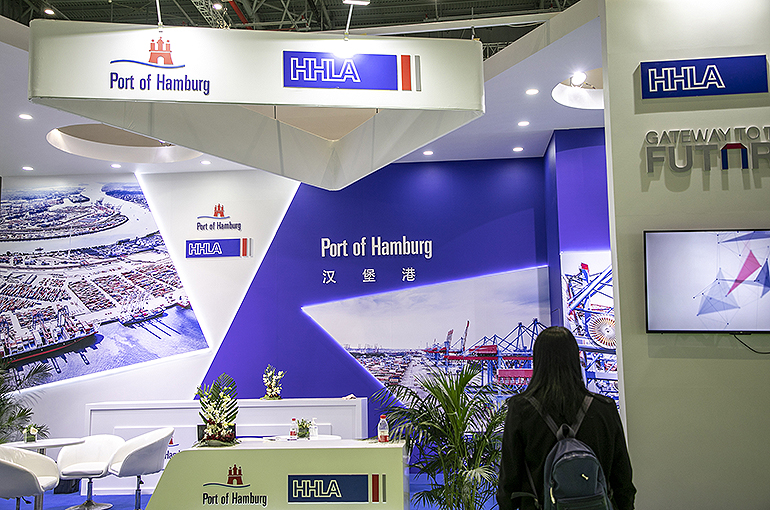 Hamburg, Germany’s Biggest Port, Seeks More Chinese Logistics Business at CIIE
Hamburg, Germany’s Biggest Port, Seeks More Chinese Logistics Business at CIIE(Yicai) Nov. 9 -- Interactions at the China International Import Expo help the Port of Hamburg, Germany's biggest seaport, expand its business via cooperation with Chinese trade partners, according to the head of Asia at Port of Hamburg Marketing.
"As a port enterprise, we have always had a close relation with Chinese ports and expect to deepen our business relation with all these ports at this event," Inga Gurries said to Yicai during the ongoing sixth CIIE held in Shanghai. She is attending the annual event for the first time.
Reduced throughput is the primary challenge facing the northern German port and it is hard to predict when the situation will improve due to the lingering shadow of economic recession, she said. In the first six months of this year, the port's container throughput totaled 3.8 million twenty-foot equivalent units, down 12 percent year on year, per interim results.
China is "very important" to the port's development, and Germany and China are key trade partners. The Port of Hamburg connects sellers and buyers at major Chinese ports via 15 shipping routes, and about one-third of all the containers the port handles come from or will be shipped to China, Gurries said.
The two countries are increasingly linked as Cosco Shipping Ports, a port investor of China's Cosco Shipping Holdings, said in May it has been given the green light to purchase a nearly 25 percent stake in Hamburg Port Container Terminal Tollerort.
Cosco has been the biggest client of the German port for the longest time, Gurries said, adding that the partnership could increase cargo transport. The deal should help make the port the most important logistic port in Europe for trade, and increase volumes in the long run, she said.
Another hot topic is green transformation. For now, cargo ships mostly carry coal and crude oil, and those kinds of fossil fuels are set to depreciate in the future, per Gurries. The port cooperates with the municipal government and firms to prepare for the transition while some rules about hydrogen and ammonia fuel have already been introduced.
The marketing bureau of the port, Hamburger Hafen und Logistik Aktiengesellschaft, one of Europe's leading logistics companies, and Hamburg Liaison Office China have attended the CIIE for six years in a row.
Editors: Xu Wei, Emmi Laine